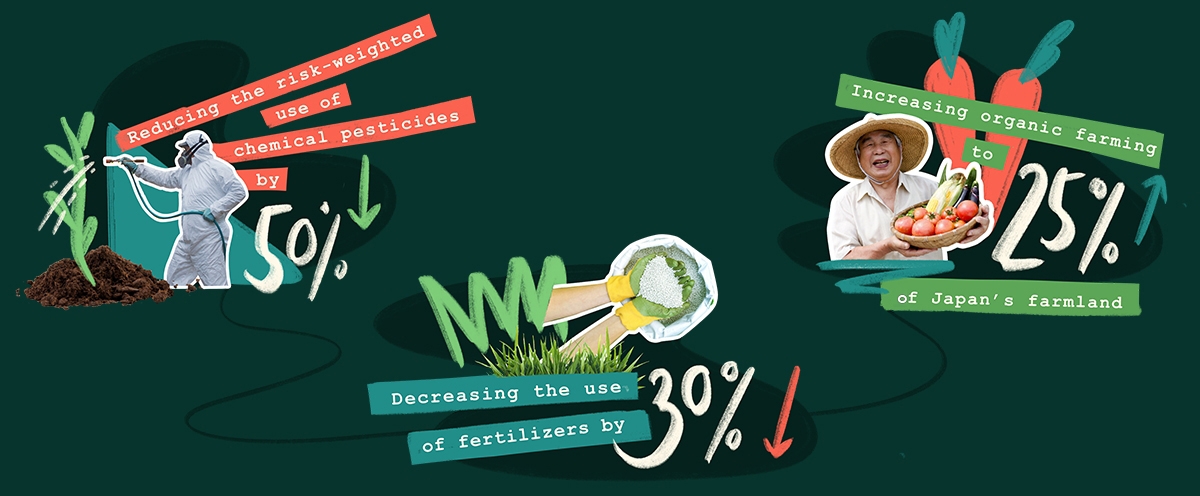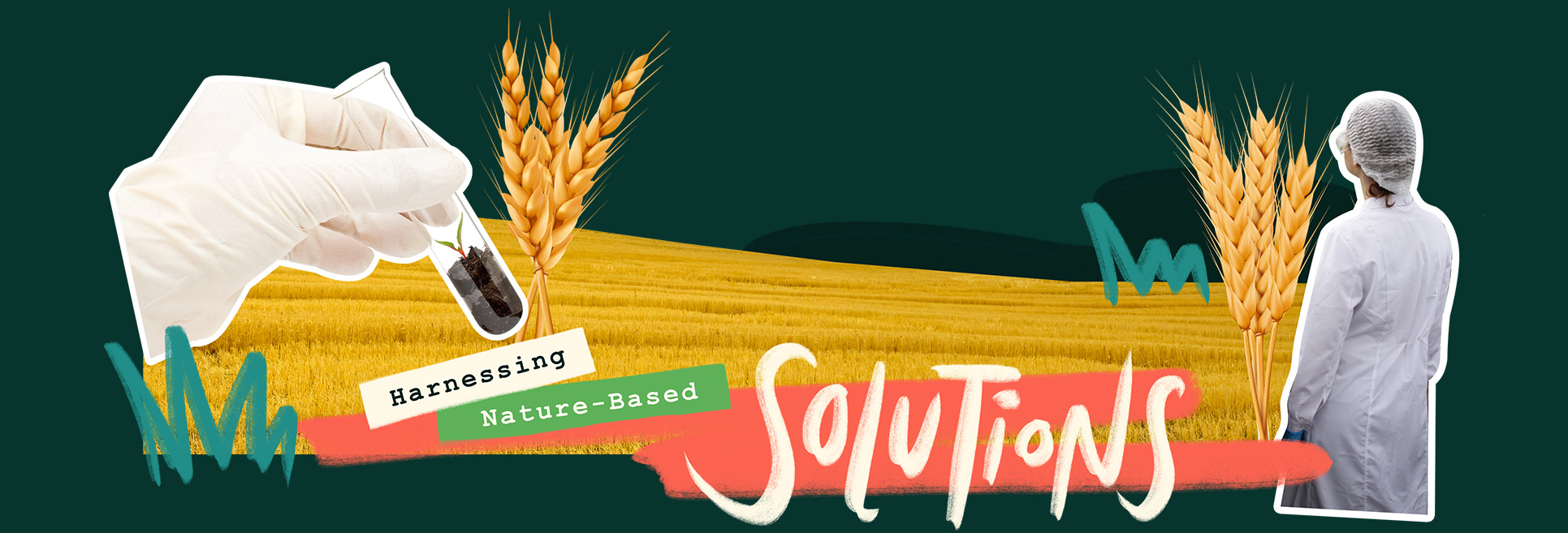Japan: Where Food Security Meets Innovation
Around the world, farming and food systems are feeling the heat1. As food and fertilizer prices remain volatile, extreme weather batters crops and the war in Ukraine strains access to a crucial breadbasket2, recent headlines underscore the fragility and indivisibility of global food security, climate resilience and geopolitical stability. In regions like Asia, which are further affected by rapid population growth and the displacement of agricultural activity with industrialization, food insecurity is an urgent challenge3.
Still, there’s hope for a better future. As governments lead a decisive shift toward sustainability, change is afoot. Japan, in particular, is playing an increasingly active role globally by hosting the Agriculture Ministers’ Meeting in Miyazaki in April 2023. Global agriculture ministers will use the platform to send a strong message on the common challenge of building resilient and sustainable food systems ahead of the G7 Hiroshima Summit in May.
Day to day, Japan is also leading the collective impetus of strengthening food security by steering agritech innovation and creating an appetite for sustainability in the agricultural value chain.

In 2021, Japan’s Ministry of Agriculture, Forestry and Fisheries (MAFF) launched the MeaDRI (Measures for Achievement of Decarbonization and Resilience With Innovation) Strategy, which aims to boost the potential and sustainability of the country's agriculture, forestry, fisheries, and food industries through innovation. Japan has been steadily promoting the strategy to build sustainable food systems suited to the Asia-Monsoon climate, which is known for its high temperatures and humidity. MeaDRI further ensures the country's transition to sustainable food systems through advanced technologies, including artificial intelligence (AI), sensors and robotics, as well as multi-stakeholder approaches that create long-term behavioral change.
Japan’s unwavering focus on engaging stakeholders at every stage of the supply chain is vital to its goal of achieving zero carbon emissions from fossil fuel combustion across its agriculture, forestry and fisheries sector by 2050. Other MeaDRI objectives, which include reducing the risk-weighted use of chemical pesticides by 50%, decreasing the use of chemical fertilizers by 30% and increasing organic farming to 25% of farmland, are equally transformative. Their success depends on a key factor: innovation.

In Japan’s graying society, the average age of farmers is 67, and the farming population is rapidly declining. Tackling this challenge is next-generation integrated farming startup Routrek Networks, whose patented AI-based irrigation and fertilization system ZeRo.agri uses underground controls and soil sensors to determine the optimal amount of water and fertilizer, while autonomously carrying out traditionally labor-intensive activities and reducing the heavy environmental impact of chemical fertilizers.
With seven of the hottest years on record occurring after 20144, climate change poses real-time challenges to food production. “Farming methods that have been passed on from generation to generation don’t work as well under today’s weather patterns,’’ says Shinichi Sasaki, founder and CEO of Routrek Networks. “We are combining the Internet of Things, cloud and artificial intelligence to make farming businesses more profitable, adaptable and sustainable, while reducing environmental waste.’’

The startup’s full-scale domestic and overseas shipments began in 2015, and more than 300 units have since been installed in farms nationwide. From asparagus to watermelons, the technology has been applied to more than 16 wide-ranging crops – to great success. At a strawberry farm in Ibaraki Prefecture, for example, harvests increased by more than 17% in areas controlled by ZeRo.agri compared with other areas in the same farm. Meanwhile, crop waste was reduced by more than 60%, and the amount of time spent on irrigation fell by 42 hours every 10 acres.

"Japan’s support for agricultural innovation has been a huge boost for our company,’’ Sasaki notes. “The government’s awards for sustainability-focused startups, like the Japan Venture Awards, for which we won the Agricultural Venture Award in 2018, have given us international credibility. And being selected for Innovation Japan, an advanced technology incubation program by the Prime Minister's Office, has further helped us enter new markets like Vietnam, where a pilot trial of our system is being implemented in Da Lat Plateau. In the future, through a joint venture with a local company, we hope to improve the quality of agricultural products in Vietnam, increase the income of local farmers, and contribute to solving the common problems of food shortages, aging populations and environmental pollution.”

Across the region and globally, nitrogen runoff is a major source of agricultural pollution. About 70% of the 120 million tons of nitrogen-based fertilizers applied to crops5 is either washed away or flushed into the air as nitrous oxide6, a greenhouse gas with 300 times the warming potential of carbon dioxide7.
As a result, the estimated $200 billion of reactive nitrogen lost to the environment every year degrades the soil, pollutes the air and triggers the spread of “dead zones” and algal blooms in waterways8, making global nitrogen waste and pollution one of the biggest problems confronting agriculture. Japan International Research Center for Agricultural Science (JIRCAS) has now developed a breakthrough solution. To combat nitrification in wheat farming while maintaining crop productivity, its researchers introduced biological nitrification inhibition (BNI) genes from wild grass into a close relative and crucial food source: high-yielding wheat. The BNI-enabled wheat achieved the same grain yield as regular wheat, even with 60% less nitrogen fertilizer9. For this far-reaching, nature-based solution, JIRCAS was awarded the United States’ Proceedings of the National Academy of Sciences’ Cozzarelli Prize for the best paper in 2021.

“BNI innovation could turn wheat, the world’s most widely grown food crop, into a super nitrogen-efficient crop,” explains Dr. Guntur Subbarao, lead author of JIRCAS’ study on BNI-enabled wheat. “Farmers would spend far less on fertilizer, and nitrous oxide emissions from wheat farming could be reduced by as much as 30%.”
To further accelerate regional cooperation and boost the sustainability and productivity of food and agricultural systems around the world, especially by sharing agricultural innovation and technologies with emerging economies, JIRCAS is now working to introduce BNI-enabled wheat to India, the world’s second-largest wheat producer. JIRCAS is also transforming food and farming systems through its Green Asia project, which enables sustainable food systems in the Asia-Monsoon region.

Through policy as well as practice, Japan’s leadership in addressing food insecurity offers a bold vision for the future of farming: inclusive, technologically enabled, and with sustainability built into its very core. From strengthening its ties with the Association of Southeast Asian Nations at the ASEAN Plus Three Agriculture and Forestry Ministers Meeting in October 2022 to spurring global cooperation in the development and implementation of agricultural innovation and human resource development, Japan is driving the conversation on creating a more resilient and sustainable global food system.

“Our country has technologies that combine environmental solutions with productivity improvements, and these technologies can be shared on a global level. The problems we are facing may not be solved in the short term, but the solutions begin today,’’ notes Dr. Yasuro Funaki, JIRCAS’ Green Asia project leader. “Although farming is a 12,000-year-old industry, we’re still developing and witnessing technology-led innovation across the sector. We’re excited to pave the way for the next green revolution by rewriting the future of farming.”

